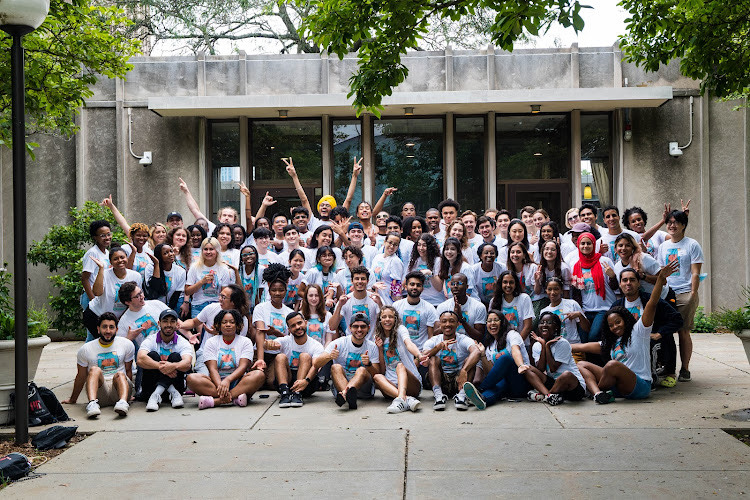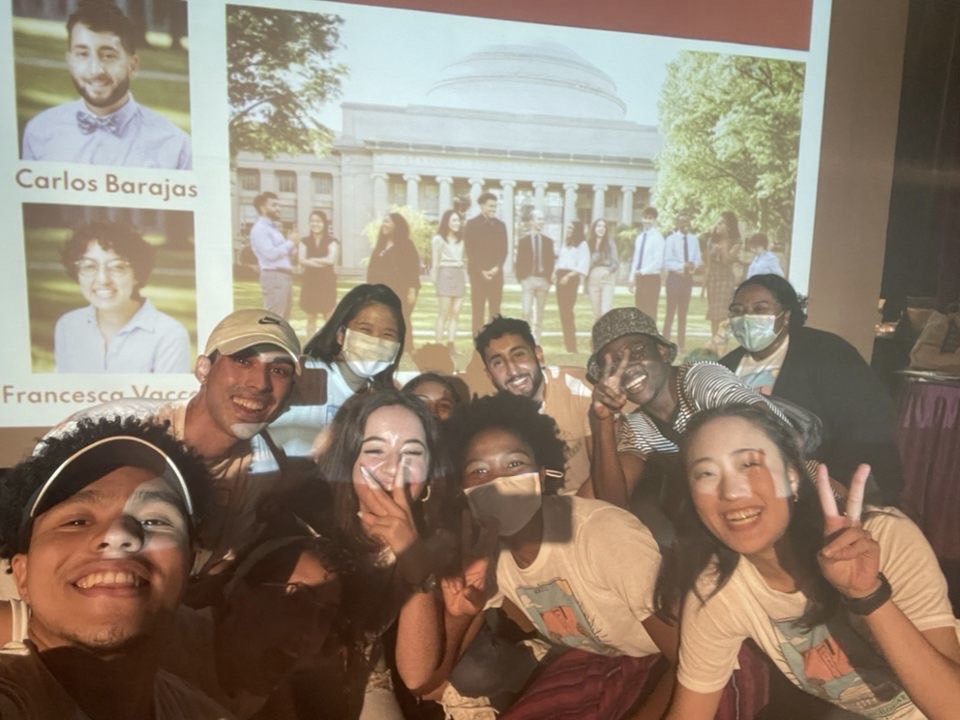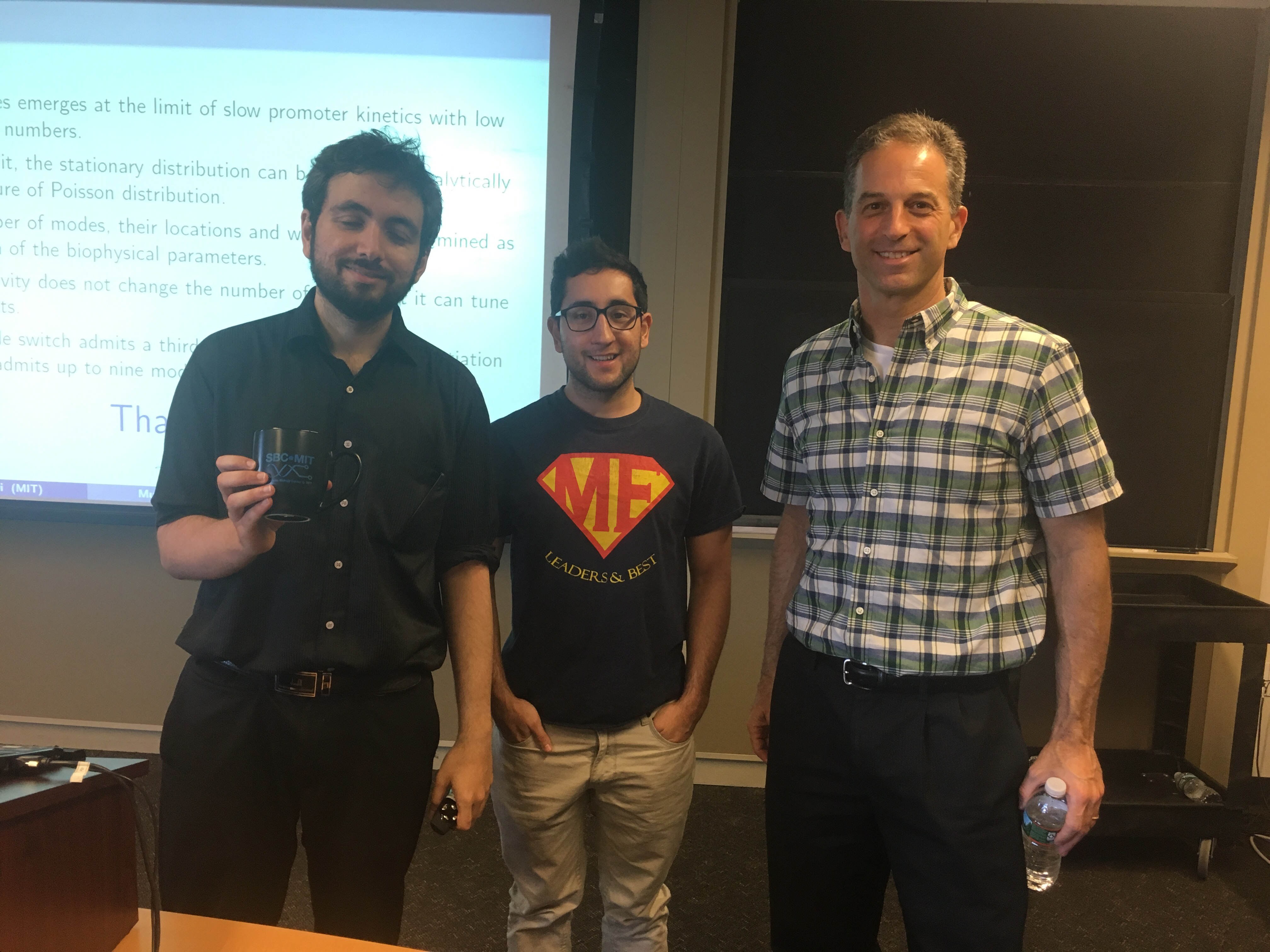MIT Summer Research Program (MSRP)
The MIT Summer Research Program (MSRP) seeks to promote the value of graduate education; to improve the research enterprise through increased diversity; and to prepare and recruit the best and brightest for graduate education at MIT. During the summer of 2021 I was a Pod Leader for the program and a Residential Advisor. Pod Leaders provide guidance and support to students outside of the lab or research group. They play an essential part in helping students thrive throughout the summer by providing academic support, helping students navigate MIT and their research experience, and building community through weekly meetings and events. In collaboration with the Office of Graduate Education (OGE) staff, Pod Leaders work in pairs to ensure that students have a successful and productive experience at MIT


Undergraduate Research Opportunity Program (UROP) Mentees
Jesse Gibson (2017-2018)
Project: SpoTH controller
Now: Bioengineering PhD student at Stanford
Amanda Putnam (2018-2019)
Project: Centralized resource controller
Now: Biology High school teacher
Luis Sandoval (2018-2019)
Project: SpoTH controller
Now: Bioengineering PhD student at USSF-Berkeley Joint program
Aidan Simpson (2019)
Project: SpoTH controller
Now: Associate Scientist at Generation Bio
Mihir P Khambete (2019)
Project: Centralized resource controller
Now: MEng student at MIT
Cindy Lee (2021)
Project: Covid dection device
Now: Undergraduate student at MIT
Teaching Assistant: Nonlinear control (Spring 2020)
I was the teaching assistant (TA) of MIT’s 2.152 Nonlinear Control class during the spring 2020 semester. My responsibilities were to write new homework problems and exam questions, grade these, help students pursue their ideas for the final project, and teach lectures when the professor was away or for review material. However, in the middle of the semester was when the SARS-CoV2 outbreak began. It was my role to lead the efforts to transition between in-person to online classes. I had to coordinate and attend meetings with the head of the MechE tech department to go over the transition plan and also ensure we had the equipment to do so. During this period I started an online forum for the class, to ensure there was a sense of community. In the forum, the students could pose questions for me or other students to answer regarding technical or logistical details.
Ashdown Graduate Dorm Events Chair and Officer
A key component in fostering a sense of community among graduate students at MIT is through the events hosted by the graduate student dorms. This is particularly critical during the fall semester when new students arrive at MIT. To contribute towards this, I became an events officer at one of the biggest graduate dorms at MIT. My responsibilities were to organize and carry out events. I did this for 5 semesters and became an integral part of the events committee, to the point that I was ascended to the events chair. My job was now to choose what events we would host for the semester, apply for funding, hire events officers, and coordinate with the officers to carry out the events. I began a series of recurring events that were centered around diversity and mental and physical health, while also maintaining the tradiatial hallmark events. For example, for the first time we got funding from the MindHandHeart initiative to host an event centered around a growth mindset to deal with setbacks. For physical health we held morning runs/yoga where at the end we had fresh fruits to make smoothies. We also started culture nights where we would host events like: salsa dance classes and Bollywood karaoke.


Advice to a Scientist
I wrote an article on how to navigate graduate school during the first two years. This article covers academic topics such as how to find your research advisor and securing funding (prior and during graduate school), balancing classes and research, planning your class schedule to reflect the topics on appearing on qualifying exams. But also covers other important aspects of graduate school that are often overlooked. For example, how to have a good work-life balance, identifying key resources on campus such as emergency funds and conflict resolution facilitators, and approaching on-campus/off-campus housing. I believe that a workshop based on these topics would be valuable for students to begin thinking about and will ease the transition between undergraduate studies into their graduate programs.
Synthetic Biology Center Events Chair
The Synthetic Biology Center (SBC) leadership board was formed to create initiatives to bring together the different labs that did synthetic biology at MIT. Given the interdisciplinary nature of synthetic biology, the labs that were members of the SBC were scattered around many departments, including biological engineering, mechanical engineering, chemical engineering, electrical engineering. Therefore, the leadership board was created with the vision that we would bring these labs together through professional and social events. Our goal was to foster a sense of community across the SBC. My role as events chair was to plan and host the several events that the board would host. This included formal events like our annual symposium and lunch talks. However, since the students wanted a relaxed environment to receive constructive criticism on their work, I also created social events like our recurring data on tap (DAT). During DAT students would present to other students and post-docs (no faculty were allowed) and we would serve pizza and beer. These efforts required careful coordination with the publicity chair for advertising and the finance chair to ensure we were within budget.
